
In 2023, we had a fantastic time celebrating our 50th anniversary with "50 Days of EPIC"! This special event showcased some of the memorable moments from our history over 50 fun days. You can still join the journey by clicking through the different years to discover what happened at EPIC and worldwide during those times. We hope you enjoy exploring our story!
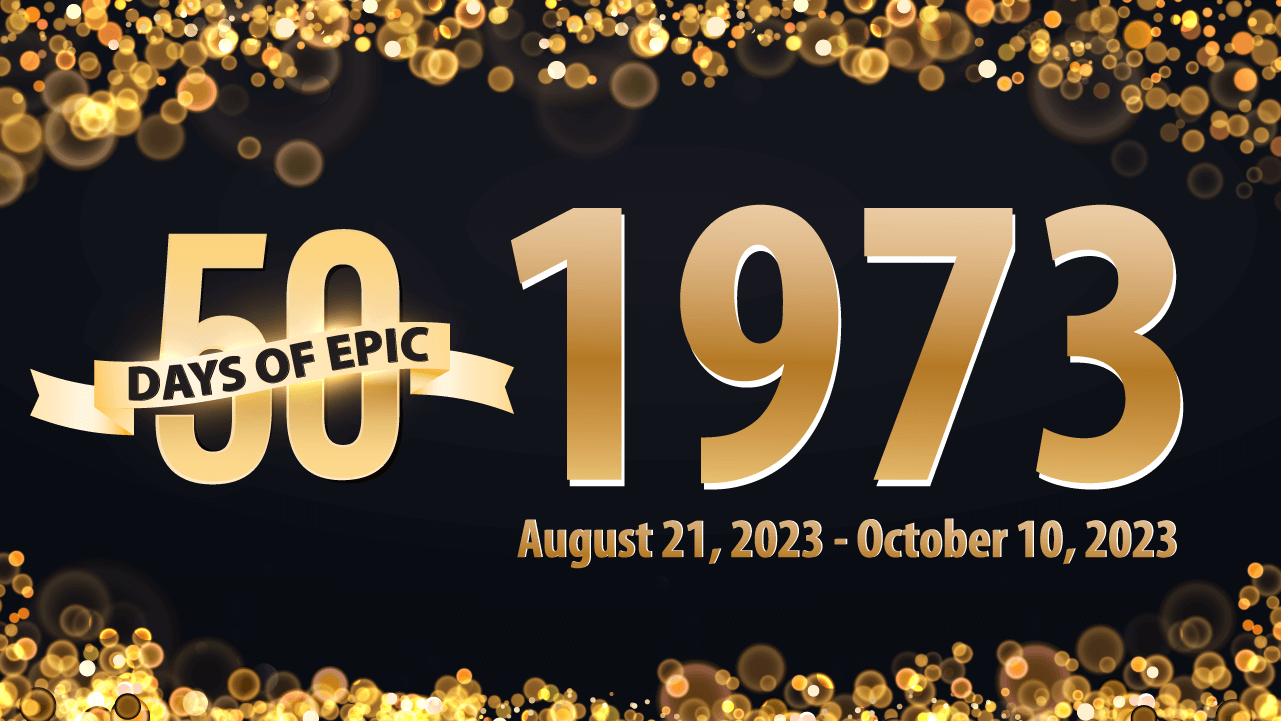
A group of citizens who were concerned about youth substance use came together, and launched a new organization – Jam House, which was incorporated on Oct. 10, 1973.
The first Executive Director of the newly incorporated organization was Chuck Huber. Jam House was located at 48 Charlotte St. now the location is a part of the Best Wester Bayfront Hotel.
According to Chuck:
“When I came on board in ’73 Jam House was an unlicensed “alternative” drug free meeting place for young local people to gather, talk, play music, cards, chess, etc. — with a volunteer vetted by the Exec. Dir. to insure no sex or drugs on the premises. At that time the “Jesus People” and many other hippies, yippees, boat people, et al migrated to/through St. Augustine, and they provided a new challenge, as no County or State services were available.
After I moved to Jam House Inc., our cooperation (with the St. Johns County Sheriff’s Office) continued, including outreach to Hastings/Spuds, Ponte Vedra, Crescent Beach, and a couple other areas when a Deputy and I would hold community drug education meetings. We (Jam House) also instituted an in-jail counseling program, run by my then-wife, now Maureen Welch, and a prisoner release program on-site at 48 Charlotte St.”
Chuck also noted: The name “Jam House Inc.” came about before Maureen and I arrived in St. A on Palm Sunday 1971 — Patti Torcolletti, one of the principal founders, told me they had brainstormed for a name that would not trigger any unconscious negative reactions, and simply made-up Jam House Inc.
The 1st Board of Directors of this new non-profit were Coleman Zuber – President, Dr. Jay Wilson – Vice-President, Roger Coffee – Secretary, Walter Ellerton – Treasurer, James Conzemius, James DeVito, M.D., David Redding, William Schlicht, PhD, Thomas Scott, Sharon Kalb.

During my two years, I wrote the Grant Applications for federal funding, contingent on raising state and county matching funds, obtained the funds, obtained the Certificate, and we were soon staffed with trained volunteers, providing 24/7 Suicide and Mental Health telephone and on-site counseling and referrals. Also, free community prepared and shared meals a couple time a week, and “alternatives” nightly with ethical hypnotists, mental health specialists, psychiatrists, meditators, and psychologists available. “
Jam House also participated in the first Florida workshop on “Working Definition of Prevention” – the start of a larger understanding of the importance of prevention when talking about substance use and “professionalizing” prevention work.
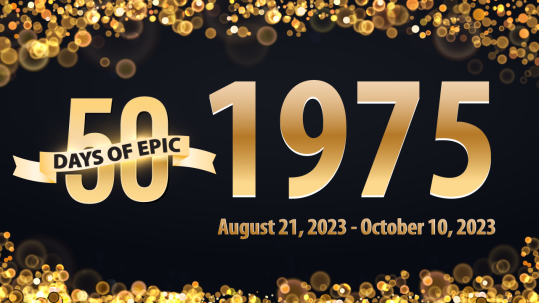
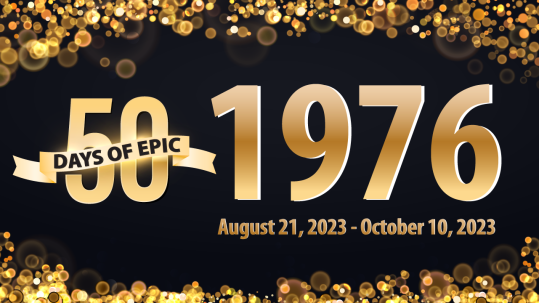
Ms. Berlin Jones came on board as the new Executive Director. Jam House continued with its current services and began branching out into more prevention activities.
Nationally, interesting things were happening in the world of substance use. After a White Paper on Drug Abuse, the Federal program to control drug abuse gained new momentum. An important briefing with President Ford was held in April of 1976 to discuss the drug abuse problem facing the nation.
Additionally, the marijuana war began in earnest with the Coast Guard becoming the lead agency for maritime drug interdiction which was very impact to Florida.

Jam House continued to offer outpatient counseling and groups as well as more community education.
Nationally, in 1977, President Carter established the President’s Commission on Mental Health by Executive Order #11973. He charged the commission with reviewing the nation’s mental health needs and making recommendations to the president on how to best meet those needs. There had never been a presidential commission that dealt with the mental health system.
The US Dept. of Justice sponsored a national survey on drug abuse and the findings were published in 1977. Youth, young adults, and older people were surveyed.
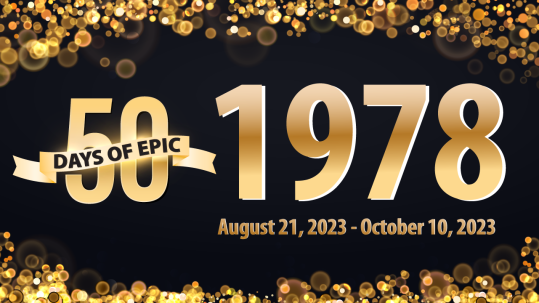
New Address: 58 Spanish St.
Due to the increase in drug use prevention work being done, Board members began having discussions around a name change and during 1978, Jam House was changed to Drug Education and Prevention Center (DEPC) to more clearly explain services and a focus on drug use prevention activities.
Prevention activities in 1978 included conducting educational groups at schools to teach communication skills, promote healthy decision making, and strengthen personal values. Additionally, groups were offered for parents to help improve communication between themselves and their children.
A fun and exciting project that began in 1978 was the Peer Counseling Program. Students from Ketterlinus Junior High School were trained by DEPC as Peer Counselors. Peer Counselors played a role in helping students new to the school acclimate to a new environment.
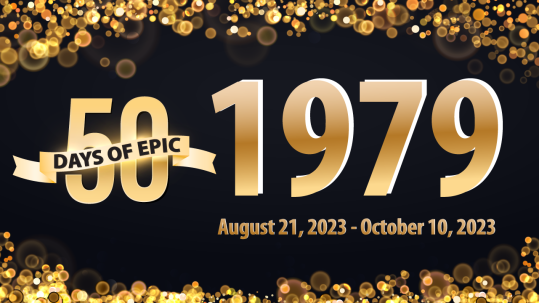
In 1979, Executive Director Berlin Jones went on a sabbatical and staff person Skip Forsyth was the acting Executive Director in her absence. After her sabbatical, Ms. Jones decided to move on from DEPC and Skip became the permanent Executive Director.
Skip recalls Joan DeWitt joining DEPC as the secretary and she would go on to work at DEPC/EPIC for over 25 years! Skip says that when paydays fell on a Friday, Joan would say “it’s a Hoopy, Happy Friday” which all the staff got a kick out of.
DEPC helped junior and high school students find summer work with local businesses during the summer of 1979 in a program called “Rent-A-Teen”. Jobs included yard work, babysitting, car washing, housecleaning, chopping, office work, and running errands. The idea behind the program was to keep young people busy earning money during summer vacation. This program continued for several years.
Also in 1979, DEPC sponsored a new Youth Diversion Program which was designed to counsel troubled youth in order to break a cycle of unlawful behavior. Youth in the program met with law enforcement, the assistant state attorney, and an intake counselor. They also visited the county jail and saw a courtroom in session.
DEPC was starting to make a transition for direct services like outpatient counseling and groups to do more prevention work. This is in part due to HRS (Health & Rehabilitation Services – the precursor to today’s Department of Children and Families), a funder, was happy with what DEPC was doing in prevention and offered more funding for those services.

DEPC hosted a five-hour “workathon” designed to clean and beautify 2 streets in St. Augustine. It was also a fundraiser as the volunteers got pledges of hourly donation for their efforts. Twenty young people and 6 adults participated, and they raised close to $1,200 for DEPC programs.
Nationally, the Mental Health Systems Act of 1980 was signed by President Carter. This Act provides grants to community mental health centers. This legislation was considered landmark legislation in mental health care policy.

DEPC sponsored a two day “New Games” training seminar followed by a “New Games” Festival. The training helped participants learn to structure games and recreational activities and was for those that worked with people, especially youth. The philosophy was a precursor to team-building/trust building games. The festival offered new and old games.
In a variation of the original Youth Diversion Project, DEPC offered classes on the juvenile justice system, drug use prevention, and life skills development for youth under the age of 18 who showed a high risk for drug and alcohol use or involvement in the juvenile justice system.

DEPC hosted the 1st celebration in the area of a “Drug Abuse Prevention Week” with the theme of “We Can Make a Difference”. Activities included five days of performances by the Covenant Players, two days of talks to 5th & 6th graders, public presentations, and poster/slogan contests. DEPC had many community partners in putting on this event including Families in Action, Flagler Hospital, St. Augustine General Hospital, the Kiwanis Club of St. Augustine, the Rotary Club of St. Augustine, Barnett Bank, VAW of America, and the community instruction services division of St. Augustine Technical Center.
On Oct. 14, 1982, President Reagan declared the “War on Drugs” and stated that illicit drugs were a threat to U.S. National Security.

According to Skip Forsyth, in 1983 DEPC ‘scrounged up’ enough funding to buy a Radio Shack TSRA Model II computer. The cost at the time was around $3,450 and it came with the screen, keyboard, and 5.5” floppy disk.
Using the new computer system, DEPC was able to develop a Drug Use and Behavioral Actions survey (so that they could compare drug use and behaviors) and local middle schools (and some high schools) allowed the survey to be given to students. DEPC then shared the results with the principals. DEPC did the survey for a few years until the schools decided to opt out.

US Senator Lawton Chiles (known as ‘Walkin’ Lawton’) paid a visit to DEPC to learn more about the drug and alcohol prevention activities DEPC was doing in the community.
While the “Just Say No” slogan was created in the early 1980’s by an advertising firm, it first emerged in 1984 with First Lady Nancy Reagan was visiting an elementary school in California when she was asked by a schoolgirl what to do if she was offered drugs by her peers and the First Lady responded, “Just Say No”. Soon the phrase became more common including in popular American culture.

According to Skip Forsyth, HRS (Health & Rehabilitation Services) – a precursor to the present-day Dept. of Children and Families and a funder of DEPC, asked DEPC to partner with 2 treatment centers in Jacksonville to collaborate on a federal grant. DEPC did participate and the grant was awarded. The funding was used to open a teen center (more about that later!) but a lot of time and effort went into the grant and in planning. This large grant led to substantial growth for DEPC including its budget and number of employees.
The Protection and Advocacy for the Mentally Ill Act was passed in Congress in 1985. This Act was designed to protect and advocate for the rights of the mentally ill.
In 1985, the number of people who admitted using cocaine on a routine basis increased from 4.2 million to 5.8 million. Also in 1985, the DEA classified MDMA (Ecstasy) as a Schedule 1 controlled substance which made it officially illegal.

Taking the week-long Drug Abuse Awareness Week, a step further, DEPC launched “OcSoberFest” – a month-long campaign with a variety of activities to educate the community about the effects of drug and alcohol abuse. Other organizations assisted with organizing the various activities which included a prayer breakfast, educational programs at schools and in the community, the screening of a prevention video, a luncheon, and kick-off at Ponce de Leon which included giveaways and entertainment. A street dance was also held as part of the OcSoberFest activities.
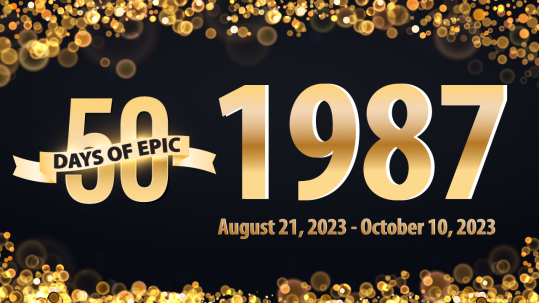
OcSoberFest was held again in 1987 and like the year previously, included a fun kick-off at the Ponce de Leon Mall and other activities throughout the community including presentations, training for professionals, book giveaway, and a television broadcast.
DEPC was awarded a grant from the Florida Dept. of Education for Project Enrichment. The purpose of Project Enrichment was to help families enhance the education their children were getting at school – especially for those working below their potential- all to prevent students from dropping out of school.

DEPC opened the Teen Alliance Center in May of 1988 – the outcome of the federal grant DEPC received a few years earlier. The Teen Alliance Center offered drug-free alternative activities for youth ages 11-17 and a drug-free place to hang out.
OcSoberFest activities also took place again in 1988.
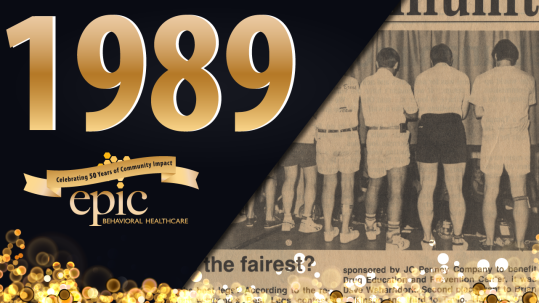
The first year of the Teen Alliance Center saw around 150 youth take advantage of the drug-free environment and activities.
DEPC developed the “PASA” Card (People Against Substance Abuse) which DEPC supporters could purchase and then receive discounts at area businesses.
DEPC hosted a “Springtime-89 Rally” which was focused on drug abuse prevention efforts with families and included a walk and rally. Additionally, DEPC coordinated Red Ribbon Week activities for St. Johns County.
A unique fundraiser was held for DEPC by JC Penney – a Best Legs Contest, of which Skip Forsyth, Executive Director, was a contestant. (When we were interviewing Skip for the 50 Days of EPIC, he funnily enough had blocked this memory! 
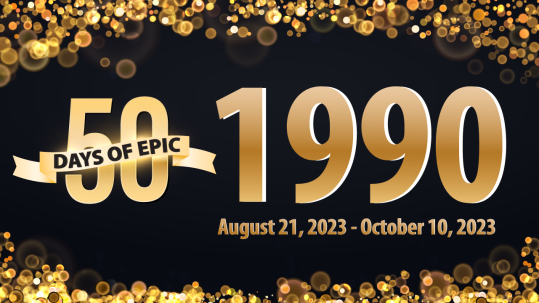
After over a decade of guidance by Skip Forsyth, DEPC welcomed new Executive Director Patti Greenough who arrived at DEPC with 16 years of experience working in community development and working with youth and families.
DEPC was awarded a grant that allowed the start of a new program called New Directions. New Directions targeted pregnant teens or teen mothers and provided life skills training and counseling services and promoted drug-free lifestyles.
Another new program beginning in 1990 was the ALPHA program. ALPHA was a partnership between DEPC and the school district. The program provided professional counseling and academic assistance for 7-14 year old youth were considered high risk for drug use. This program took place at the partnering schools.
DEPC hosted a fundraising membership drive that allowed individuals, families, and businesses to support the fight against drug abuse by supporting EPIC.
DEPC offered Intervention Services for those individuals who needed a safety net to recover from alcohol or other drug abuse. Services were ongoing and included counseling, assessment, classroom work, multi-family groups, and client tracking through and after treatment.
To help with the new programs and any transportation issues, DEPC was able to purchase a 12 passenger van to transport clients to and from program events.
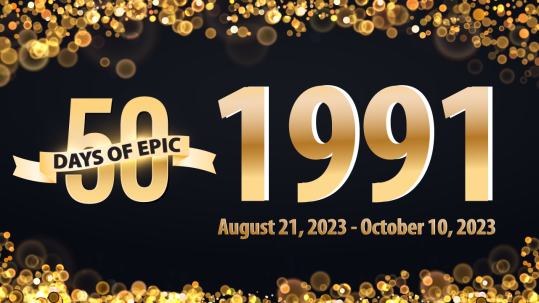
DEPC’s Rent-A-Teen program partnered with St. Augustine General Hospital and the Red Cross to present a Summer Safety Seminar for young adults. In addition to drug awareness education presented by DEPC, participants learned basic first aid, babysitting certification, fire safety, bicycle safety, and employability skills.
The 1991 National Household Survey on Drug Abuse showed that 37% of the population had tried marijuana, cocaine, or other illicit drugs at least once in their lifetime.
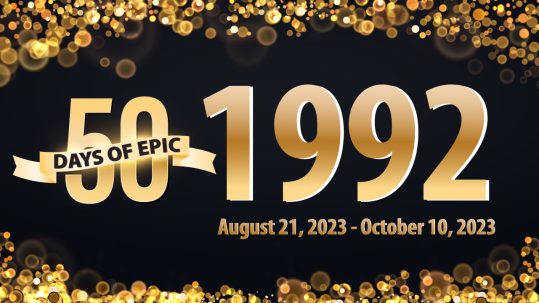
DEPC continued to host an annual Red Ribbon Campaign which in 1992 culminated in an Awareness Walk and Fair.
DEPC was awarded an ACTION Grant to establish a community volunteer program called “Friends Against Drugs”. Volunteers helped in many of the DEPC programs and allowed for opportunities to be tailored to fit each volunteer’s time and talents.
DEPC launched LEAP – the Lincolnville Educational Assistance Program and provided DEPC services to youth in the Lincolnville area of St. Augustine. Services included tutoring and homework assistance, computer instruction, recreation and cultural activities, and small-group education classes.
Also in 1992, Congress established the Substance Abuse and Mental Health Services Administration (SAMHSA) to make substance use and mental disorder information, services, and research more accessible.
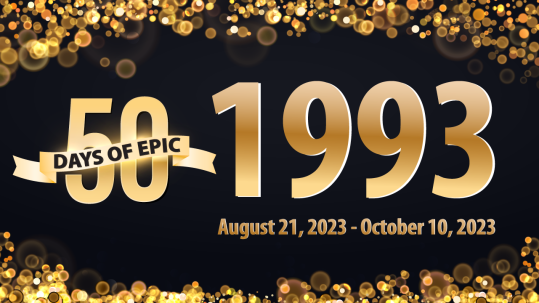
DEPC celebrated 20 years of service to the community! Part of the celebration included a Gala fundraiser held at the Old Jail.
DEPC developed an AIDS education and outreach program in collaboration with the St. Johns County Health Department, Hospice, and other health agencies in the community.
DEPC continued to offer 7 primary programs: Community Prevention Services (including Red Ribbon Week and other prevention/educational activities), ALPHA (which had begun to target 3rd, 4th, and 5th graders), New Directions, the Teen Alliance Center, LEAP, Friends Against Drugs, and Intervention Services (now with a focus on adolescents and a new name: Children/Adolescent Counseling Services).
In 1993, DEPC also moved from our Orange Street offices to the Solla Carcaba building at 88 Riberia St.
But DEPC didn’t rest on its laurels! New programs were also added in 1993: Connections – which provided pregnant, parenting, and disabled youth, ages 14-21, with a wide range of employability training; and HELP – Hastings Enhancement Learning Program, a community youth center & programs located in Hastings (to join DEPC’s other 2 youth centers: LEAP and the Teen Alliance Center).
In 1993, DEPC hosted the St. Johns County Future Search Conference where 55 professionals from the community gathered for a 3-day event to create a community vision in response to drug use problems.
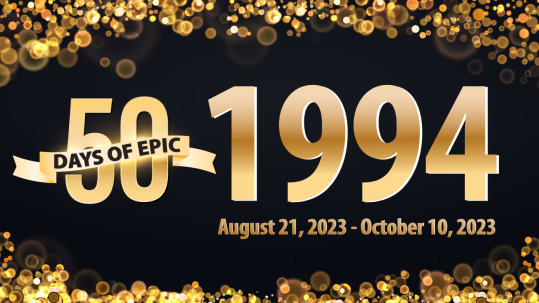
DEPC became the sponsoring organization of the local Big Brothers Big Sisters of St. Johns County (BBBS) – a move described as a ‘match made in heaven’ as the nationally known mentoring program fit right in with EPIC’s educational and prevention program services. BBBS remained a full affiliate member of BBBS of America with EPIC handling administrative functions. Oversight was provided by a local Advisory Council.
DEPC worked with community partners in coordinating the 1st Project Graduation – an all-night celebration for St. Johns County graduating seniors. Students partied in a safe and drug-free environment with music, dancing, games, food, and door prizes.
DEPC also started a program known as MIME – Marionettes in Multi-Cultural Education.
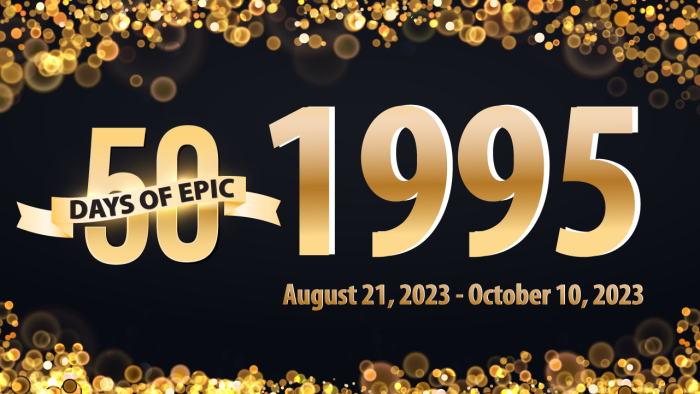
DEPC changed its name to EPIC Community Services. With the growth of services/programs offering more treatment and serving more populations, the Board and staff decided that the organization needed a more wholistic name. At this time, EPIC wasn’t an acronym – it was chosen because of it’s definition and the feeling that those on their recovery journey from substance use or mental health disorders were truly on an epic journey fighting an epic batter and EPIC was here for them.
The JUMP (Juvenile Mentoring Program) began with a grant from the US Dept. of Juvenile Justice and was run by Big Brothers Big Sisters of St. Johns County, now under EPIC’s umbrella. This grant allowed BBBS to offer site-based mentoring for the first time. Volunteers could visit their “little’s” at the child’s school and spend time with them on school campus playing games and helping with homework.
EPIC hosted a six-week Summer Camp for children in EPIC programs. This camp was for children enrolled in EPIC programs and was in response to parents’ requests to have an activity for their children during the idle summer months. The 6-2-week summer camp focused on career development, personal health and wellness, positive communication, and conflict resolution skills.
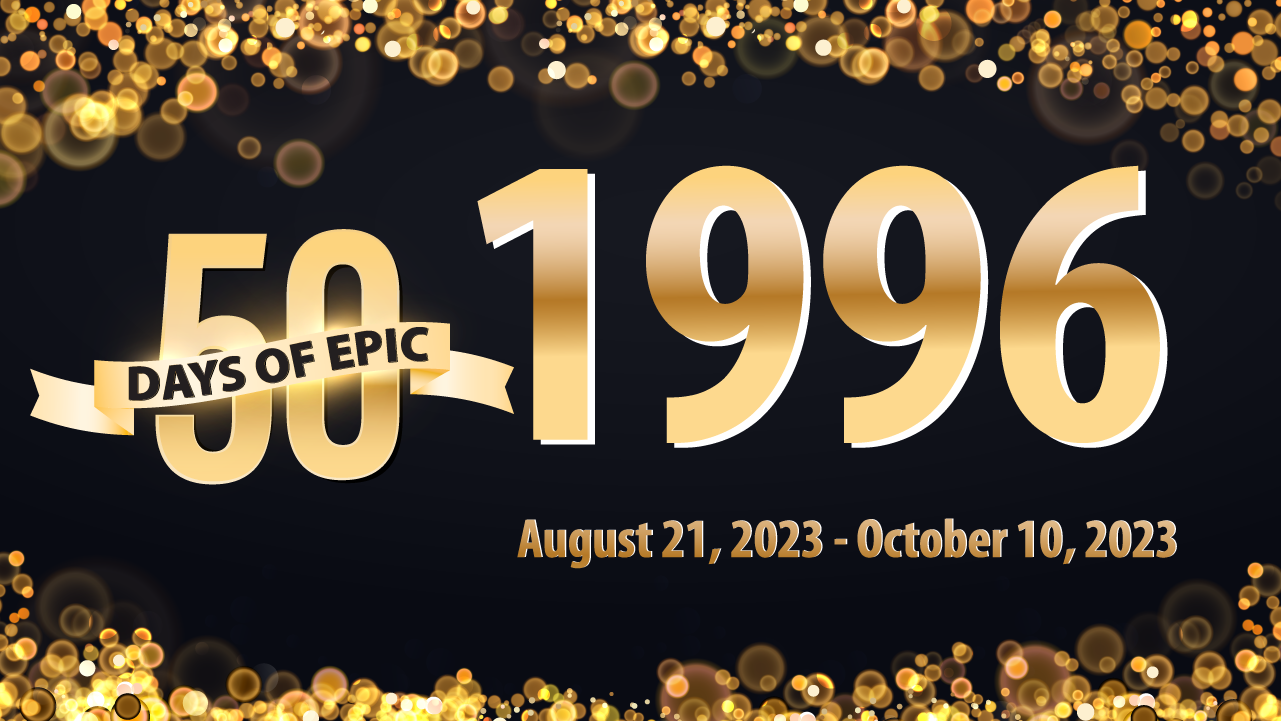
EPIC started multiple programs and fundraisers.
WET – Wilderness Education & Treatment Project – helped middle school youth who were beginning to make poor choices. Students in the program learned how to work together to solve problems and make decisions, by engaging in outdoor activities and community service projects.
EPIC began The Monarch Project for Emerging Women which offered one-to-one mentoring, educational forums and seminars, career exploration, counseling and support groups and a multi-media resource center.
EPIC joined with other community organizations to plan and implement the first Ancient City Kids Day (ACKD). Taking place on “Make a Difference Day”, ACKD offered a day for families to spend meaningful time with their children. Children serving organizations provided fun activities for children and resource information for parents. Kid-centric live entertainment, free t-shirts for kids, and goody bags were part of the fun. The only cost was the food.
EPIC was not immune to cut backs in government funding and so got creative in raising funds for EPIC programs. In 1996, EPIC debuted the Flower & Garden Expo to stellar reviews.
Meanwhile, EPIC’s Big Brothers Big Sisters program launched Tips for Kids’ Sake – a fundraiser that placed local celebrity waiters in a local restaurant. The celebrities served their friends and family, and all their tips were donated to BBBS. The first Tips restaurant was Seafood Kitchen.
Another fundraiser was launched by EPIC – “An Evening with Ned Pollack” – attendees enjoyed watching acclaimed local chef Ned Pollack prepare a multi-course meal and then got to enjoy it.
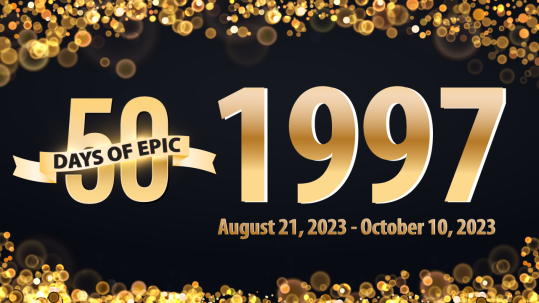
Building on the success of last year’s Flower & Garden Expo, EPIC developed “An EPIC Celebration of Spring” which incorporated the Expo (enhanced with gardening lectures), the new “A Taste of St. Augustine”, and an Historic Inns Tour that took place downtown with St. Augustine’s beautiful bed & breakfast inns.
EPIC’s Family Seminar Series, part of our Community Prevention Services, expanded to include topics such as positive discipline, stress management, financial planning, and personal safety.
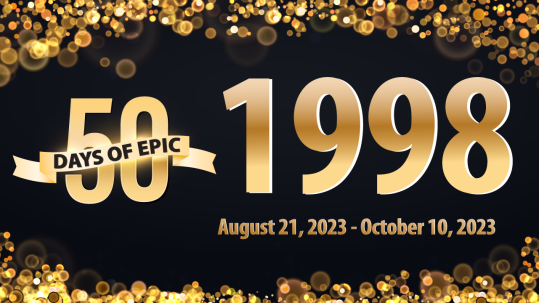
EPIC continued to offer prevention and treatment programs for the St. Johns County community. Additionally EPIC, continued to take the lead for Project Graduation and Ancient City Kids Staff and the Board of Directors celebrated maintaining strong programs and helping our community during the Annual Meeting held at the Lightner Building.
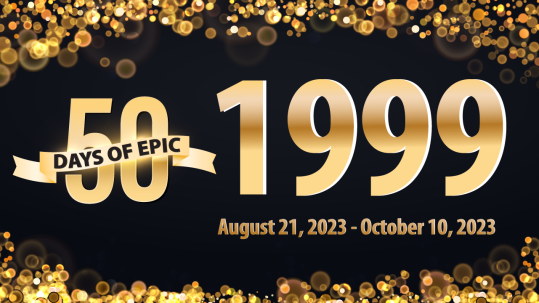
While refining the EPIC mission statement, the EPIC Board of Directors recognized that within “EPIC” was an acronym that uniquely tied into the strengths and focus of EPIC Community Services: Education, Prevention, Intervention, and Counseling. A new slogan was also developed: “Strengthening Families Throughout Life’s Journey”.
The inaugural Mentor Marathon was hosted by BBBS of SJC and included multiple events that people could attend to learn more about mentoring opportunities in the county. BBBS partnered with other mentoring organizations so that potential volunteers could learn about various options available to help children. (Additionally, with BBBS, Tips for Kids’ Sake continued to be a popular event and expanded to 3 restaurants.
EPIC’s CEO Patti Greenough was awarded the prestigious Florida Distinguished Service Medal from the Adjutant General of the Florida National Guard.
EPIC hosted a special Family Night with guest speaker Deborah Levine Herman, humorist, and author of “An Idiot’s Guide to Motherhood” followed by an old-fashioned community dance.
A Flagler College student designed the winning ACKD logo and began a long tradition of providing the logos for the event with the kids in the logo visiting different St. Augustine landmarks.
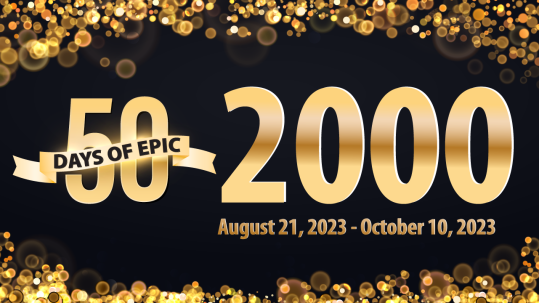
EPIC purchased its own building in 2000. Long a goal, the idea of purchasing our own home turned into a reality with a $50,000 donation to the building fund. New offices were located at 1400 Old Dixie Hwy.
EPIC implemented “Project Northland” – a best practice prevention program designed to prevent or reduce adolescent substance use among middle-school youth. Additionally, the “PASS (Positive Alternative to School Suspension)” was introduced as an alternative for middle and high school students suspended from school.
With a grant from the Jacksonville Jaguars Foundation, EPIC began offering a parenting program called “Parenting Wisely”.
EPIC’s Monarch Project hosted the 1st Young Women’s Leadership Conference at St. Johns River Community College. Over 60 young women from local high schools attended and participated in workshops on topics such as Time Management, Stress Management, and Interviewing Skills. Additionally, panels on various career options were offered.
In partnership with the State Attorney’s Office, EPIC began offering the ADI (Anti Drug Initiative) Level 1 program. ADI was a pre-trial diversion program for first-time drug offenders that provided a sex-week counseling program in the hopes of reducing the number of repeat drug offenders.
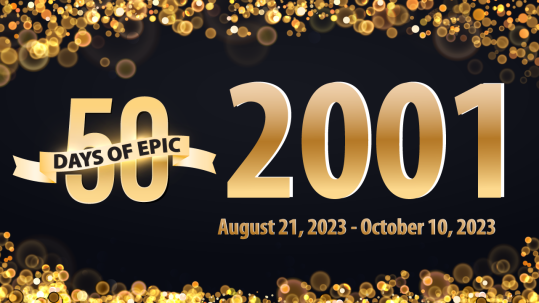
Circuit Court Judge Robert Mathis announced the start-up and planning of the St. Johns County Drug Court. EPIC was a member of the task force given the responsibility to research and plan for bringing Drug Court to St. Johns County. EPIC will be the treatment provider. Drug Court was anticipated to start in 2002.
Secretary Joan DeWitt celebrated her 25th anniversary with EPIC.
The Monarch Project hosted ‘Girl Power’ seminars for incoming 9th grade girls to help them feel prepared and confident as they moved into high school.
Project Northland teamed up with SWAT to host a free night out for all middle school kids in St. Augustine.
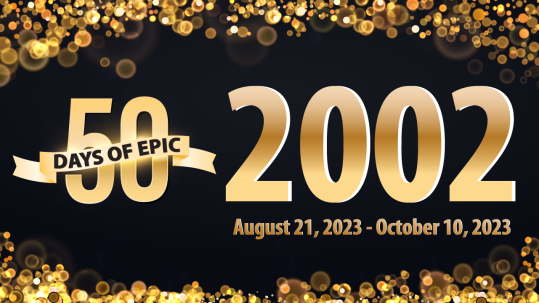
Florida First Lady Bush visits the Young Women’s Leadership Conference In 2002, Florida First Lady Columba Bush attended the 2nd Annual Young Women’s Leadership Conference (hosted by The Monarch Project) and met with attendees and provided the keynote speech.
Level 2 of the ADI (Anti-Drug Initiative) began in partnership with the State Attorney’s Office.
EPIC, in partnership with Flagler Hospital, offered a 6-week tobacco cessation program for adults, called “Kick Butt – Knocking out Nicotine”.
Project Success, a school-based student assistance program, was implemented at The Evelyn Hamblen Center. Participating students attended a 10-week prevention education class, as well as individual and group counseling.
EPIC’s Community Education program continued to provide educational presentations in many of the local elementary schools and the most requested topics were Anger Management and Being Kind/Not Gossiping.
EPIC’s Outpatient Counseling Center began offering Moral Reconation Therapy – a cognitive-behavioral treatment system that leads to enhanced moral reasoning, better decision making, and more appropriate behavior.
Drug Court began in St. Johns County and EPIC was the treatment provider. This specialty court is an intensive intervention that involves individuals in a yearlong course of treatment and court supervision.
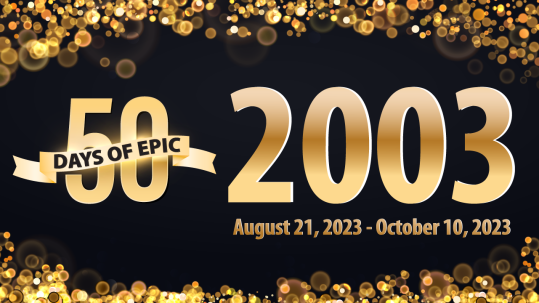
EPIC celebrated our 30th anniversary of serving the community.
The Monarch Project hosted a Summer Leadership Institute for rising 9th graders (as well as continuing with the Young Women’s Leadership Conference).
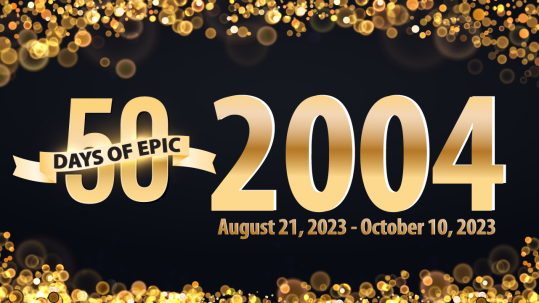
EPIC was selected to recruit, train, and license foster homes by St. Johns County Community Based Care.
The Prevention Coalition of St. Johns County, coordinate by EPIC, received a federal grant to aid in drug use prevention.
The Big Brothers Big Sisters program was awarded a federal grant that allowed them to have high school students mentor younger students and then in turn, the high school students were mentored by the St. Johns County Employee Sunshine Network.
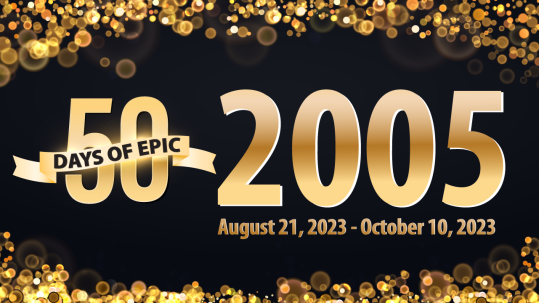
EPIC launched our new logo. The idea of seeing EPIC as individuals contributing for the good of all whiles also being cooperative and collaborative also applies to bees and the building of their honeycombs and sustaining the hive. These ideas were used in the development of the new logo.
EPIC was appointed as the site coordinator for the West Augustine Community as they received Official Recognition as a Weed and Seed Site. Weed and Seed is a Department of Justice strategy with a two-pronged approach – local law enforcement agencies cooperate in ‘weeding’ out criminals and ‘seeding’ in prevention, treatment, and neighborhood revitalization services to the area.
In partnership with the SJC Sheriff’s Office, EPIC launched the SIGHT Program. SIGHT (Serenity, Integrity, Goals, Hope, Trust) offered an in-jail treatment program for both women and men in the jail due to substance use issues.
EPIC offered The Bullying Prevention Program – a multi-level program designed to reduce or prevent bullying through creating a change school climate and providing intervention for youth and families.
EPIC’s Community Education program presented to every freshman at Flagler College regarding the dangers of binge drinking.
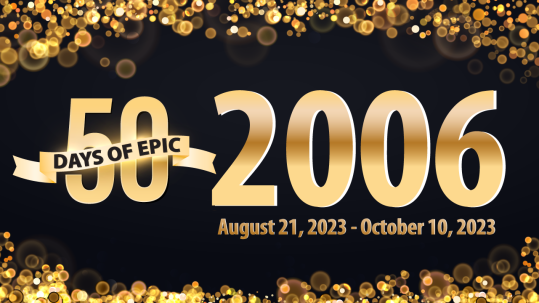
EPIC became a Medicaid provider.
Implemented two new parenting programs: ‘Parent to Parent’ and ‘Parenting Wisely’ with the goal of providing parents with tools and resources to help protect their children from the “toxic culture”.
BBBS of SJC implemented an ‘E-mentoring’ program between county employees and our High School Bigs for career mentoring.
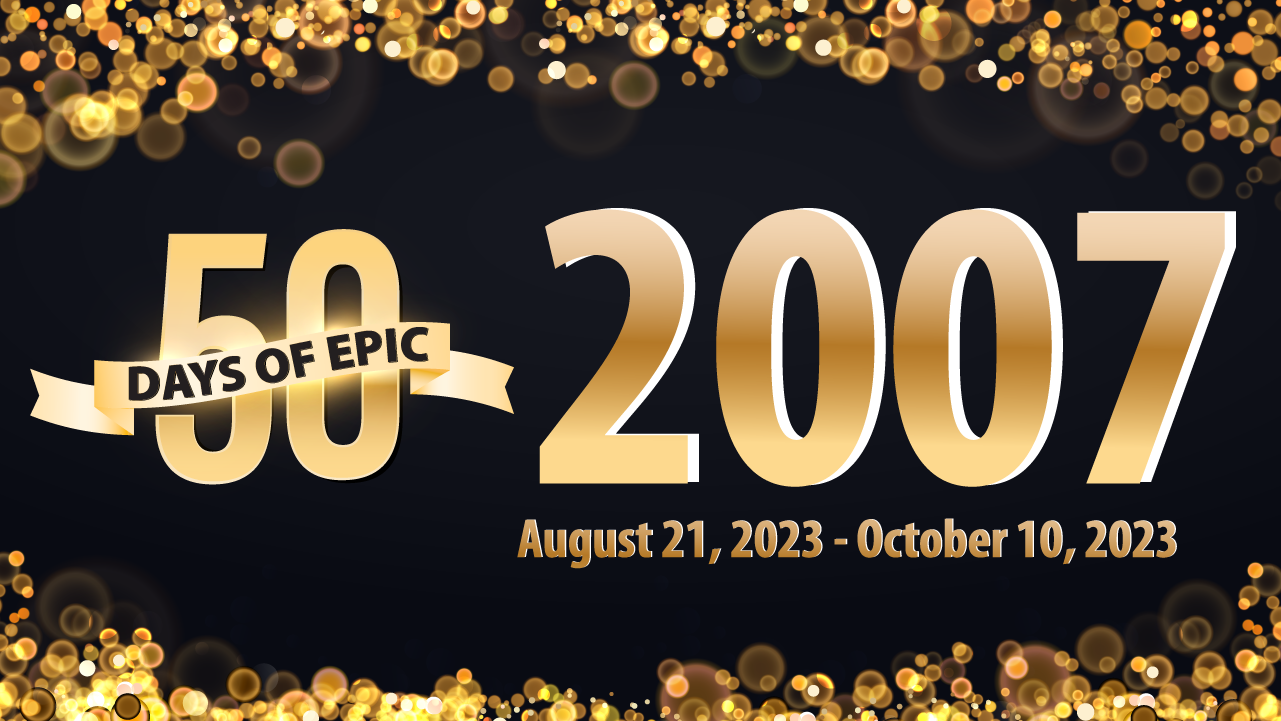
EPIC added psychiatric services to our outpatient services in 2007.
EPIC launched THINK! ASAP – a program for students suspended from school for alcohol and other drug use. Services included a Prevention Education Series, psycho-education groups, parent involvement, and crisis intervention. The program was offered at Gaines Alternative Program.
BBBS of SJC’s Tips for Kids Sake expanded to 13 restaurants.
The popular EPIC fundraiser, A Taste of St. Augustine, moved to a new venue: the St. Augustine Amphitheatre.
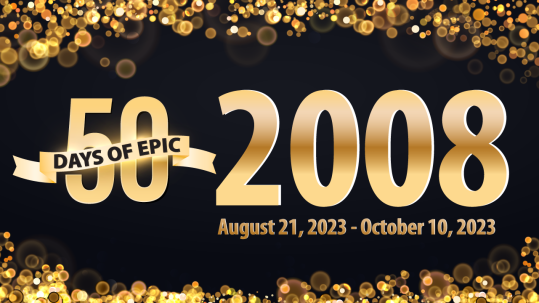
EPIC celebrated our 35th Anniversary with a fun new event: Crocodile Rock. Crocodile Rock took place at the Alligator Farm and celebrated the 70’s including our version of American Idol: “Vinyl Idol” where locals dressed up as 70 Celebrities and karaoke-d 70’s songs with winners chosen by audience monetary votes!
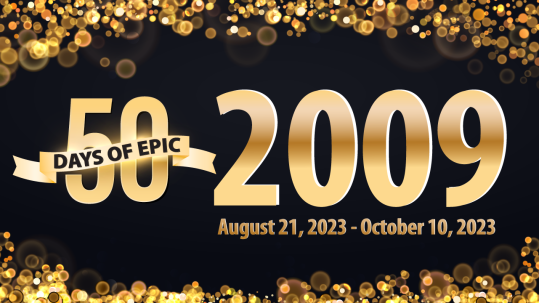
Launched a new fundraising campaign: “500 Friends – The Voices for Recovery”.
EPIC expanded social networking technology with an e-newsletter and via Facebook.
EPIC was recognized by the Florida Dept. of Children & Families for our exemplary Clinical Peer Review Process.

As an enhancement to the Taste of St. Augustine, the “Race to the Taste 5K” was launched. Runners in the 5K received free admission to the Taste.
EPIC’s CEO, Patti Greenough, celebrated her 20th anniversary with EPIC and she was also elected as the President of the Florida Alcohol and Drug Abuse Association Board of Directors.

EPIC implemented the “Strengthening Families Program” which brought parents and teens together to work through family conflicts and other challenges.
EPIC hosted our 1st Recovery Month event: “Light up the Plaza for Recovery” to celebrate those on their recovery journey. The event included speakers, music, and opportunities to light a luminary in honor of someone in recovery.

EPIC received our 1st CARF (Commission on Accreditation of Rehabilitation Facilities) Accreditation and on our 1st audit, received the accreditation for a 3-year period – the highest level. According to CARF, “An organization receiving a Three-Year Accreditation has put itself through a rigorous peer review process and has demonstrated to a team of surveyors during an on-site visit that its programs and services are of the highest quality, measurable, and accountable.”
In 2012, EPIC began doing business as EPIC Behavioral Healthcare. The board and staff felt the new name better communicated our focus and reflected on research that shows mental health and substance use disorders are brain diseases and healthcare issues.
EPIC secured a contract with the Dept. of Juvenile Justice for the Civil Citation Program which offers substance abuse education to adolescents who have received a civil citation for drug or alcohol use.
EPIC began discussions in the community about the need for a detox center located in St. Johns County to serve our residents. St. Johns County had been without a local detox center for more than two decades.
EPIC was awarded a prevention grant for BASICS – which allowed for prevention and educational services at St. Johns River State College.

EPIC Board members and staff and county officials traveled to Tallahassee to meet with our legislators on the need for a detox center in St. Johns County. They met with success and the Florida Legislature backed EPIC’s efforts and appropriated funding for the operations of a comprehensive detoxification program in St. Johns County. EPIC was able to purchase a building and begin the renovations needed to house the detox center.
EPIC started a Caregivers Support Group to offer support and guidance to caregivers of children in our Counseling Center program.
EPIC celebrated it’s 40th anniversary!

EPIC opened the EPIC Recovery Center (ERC) – St. Johns County’s only detoxification/residential treatment center. The ERC opened as a 24/7 facility offering drug and alcohol rehabilitation services and has 16 beds – 12 detoxification beds and 4 residential beds. With the opening of the ERC, EPIC doubled the number of staff and had 2 different campuses. In the first five months of operation, the ERC served 328 individuals.
EPIC also expanded outpatient programs to include psychiatric services for both children/adolescents and adults, medication management at both campuses, new mental health and substance use groups for women, and expansion of the play therapy program.

EPIC began medically assisted treatment through offering Vivitrol to help address the physical aspect for opiate and alcohol addiction treatment.
EPIC began offering Open Enrollment days where people could come in to see a counselor for an evaluation with no appointment needed.

EPIC’s Recovery Center expanded to 6 residential treatment beds and served 805 individuals (an 18% increase over last year).
BBBS’ major fundraiser – Tips for Kids’ Sake has a record-breaking year – 26 participating restaurants, 170 Celebrity Waiters, and over $70,000 raised for the BBBS mentoring programs.
BBBS was also chosen as the beneficiary of the Conch House’s Great Chowder Debate.
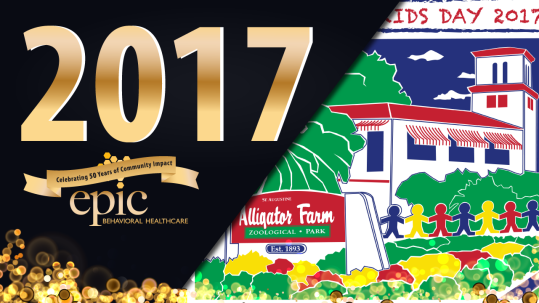
In response to the opioid epidemic, EPIC developed and implemented an Opioid Treatment Team.
EPIC was asked to provide the treatment component in St. Johns County’s new Veteran’s Treatment Court.
The fundraising campaign One Bed. One Life was developed. This campaign raised funds for a ‘general scholarship’ available to help those who needed the services of the ERC but didn’t have the means to pay or didn’t have insurance.
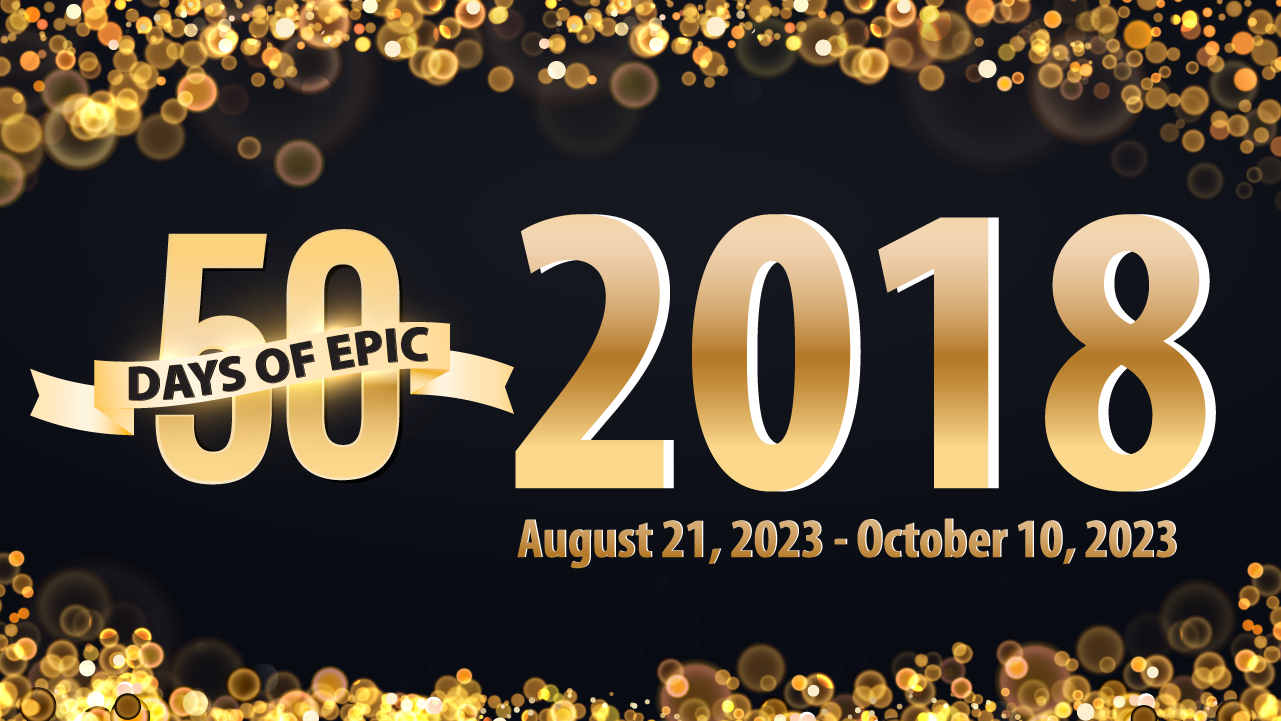
EPIC opened our first sober living home – Second Wind Sober Living home for men.
EPIC added a Family Intensive Treatment Team (FITT) and a Family Intervention Specialist (FIS). Additionally, EPIC added Peer Support Specialists to staff – individuals with lived experience to provide extra support and coaching to our clients in recovery.
BBBS implemented a new logo and brand repositioning and launched the “Bigs in Blue” program where local law enforcement officers become mentors to children.
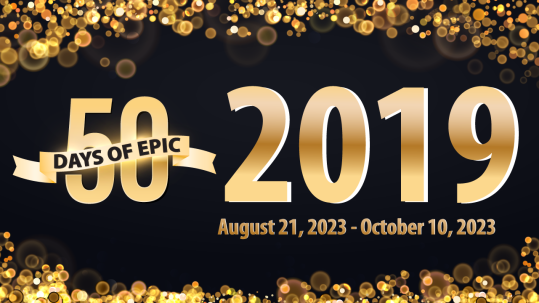
Implemented the JET Program (Jail-based EPIC Transition) – JET is a collaborative effort with the St. Johns County Sheriff’s office to assist high utilizers of the criminal justice system transition from jail into the community. It provides mental health and substance use treatment as well as care coordination.
EPIC opened the MARS Clinic (Medication Assisted Recovery Services) to expand medication-assisted treatment (MAT). MAT combines medications, outpatient counseling, care coordination, and peer support services – all to treat opioid and/or alcohol addiction.
EPIC’s Prevention Unit began offering “Catch My Breath” – an adolescent vaping prevention program.
They expanded Second Wind Sober Living homes to include women’s and 2nd men’s houses.

In response to COVID, EPIC quickly pivoted and began offering our services via telehealth. As an essential organization, EPIC didn’t close and continued to provide services both virtually and in-person for those unable to do telehealth.
EPIC opened two new properties – one on Lewis Speedway (close to our judicial and law enforcement partners) and one on CR 210 (to provide a more convenient location for our clients in the northern part of the county). These campuses, North Campus, and Northwest Campus, respectively, join our Central Campus and South Campus (EPIC Recovery Center).
The BBBS of SJC Big Brother of the Year was selected as the Big Brother of the Year for the State of Florida.

In honor of National Recovery Month, EPIC hosted the Inaugural Recovery Fair – a celebration of recovery for those on their recovery journey (or looking to start).
EPIC joined four other behavioral health organizations in the NE Florida area under a grant-funding program called “Talkable Communities.” The goal is to encourage health conversations and activities that spearhead a focus on mental well-being for children and families. The key component is providing free, evidence-based mental health/suicide prevention classes throughout the community.
EPIC opened our Same Day Access Center at Central Campus, where people can walk in and be seen for an assessment without an appointment.
EPIC’s Flower & Garden Expo moved to Sykes Family Farm.

EPIC launched the Mobile Response Team for adults 26 and older who are in crisis and a Co-Responder Program with the SJC Sheriff’s Office.
EPIC partnered with the Flagler County Sheriff’s Office for in-jail treatment support services.
EPIC increased residential bed capacity by 60% through renovations.

EPIC celebrates 50 Years of community impact!
EPIC opened an office in Bunnell (Flagler County) offering outpatient mental health & substance use treatment and prevention services.